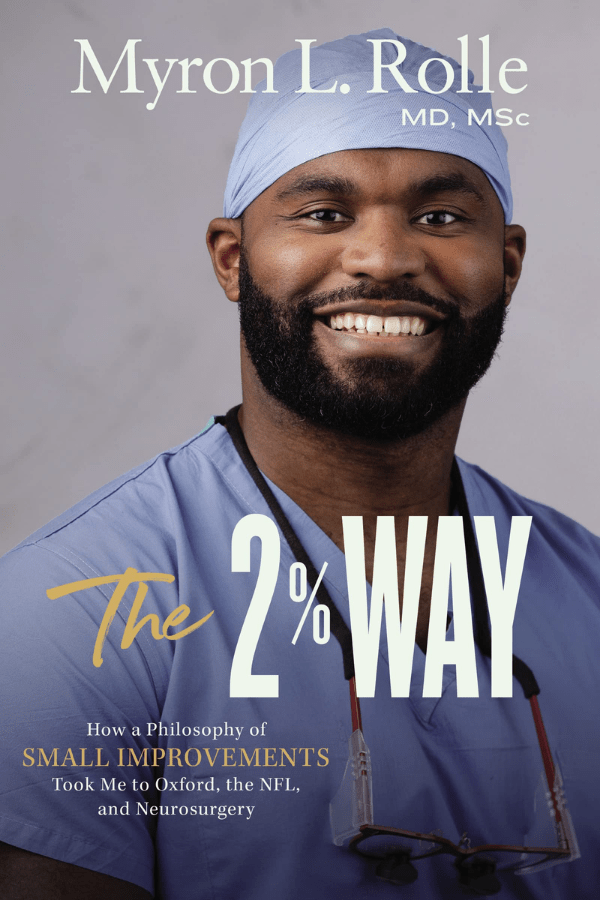Former NFL player and current pediatric neurosurgeon Dr. Myron Rolle chats with Trey Elling about THE 2% WAY: HOW A PHILOSOPHY OF SMALL IMPROVEMENTS TOOK ME TO OXFORD, THE NFL, AND NEUROSURGERY. Topics include:
- An explanation of the 2% way (0:45)
- Why examining one’s foundations is important for fulfilling potential (2:26)
- What his mummy was like during his childhood (4:13)
- His dad’s response to Myron kicking another kid’s butt for calling him the n-word (6:12)
- The benefit of adopting his father’s stoicism as an adult (7:43)
- The influence of Dr. Ben Carson’s book, Gifted Hands (9:53)
- The opportunities and experiences his football talent afforded him at prestigious prep high schools (12:03)
- Why he decided to play football and attend college at Florida State University (16:08)
- An epiphanous moment at a San Francisco Denny’s when the Seminoles were prepping for a bowl game in the Bay Area (20:48)
- Starting a program to assist the young people within the Seminole tribe in Florida (25:08)
- Lessons learned from initially failing to qualify for the Rhodes Scholarship (29:48)
- The exhilaration of winning the Rhodes Scholarship (33:29)
- Why he chose to pursue the Rhodes Scholarship over an NFL career, following his junior year at Florida State (35:12)
- Wonderful advice he received from Dr. Ben Carson the weekend before heading to Oxford (39:31)
- The biggest benefit from his time at Oxford (42:17)
- How he became better from the disappointment of sliding to the sixth round of the NFL draft (45:02)
- Spending the offseason after his rookie year representing the Clinton Global Initiative in Africa (47:25)
- Why his time in the NFL may have been cut so short (50:17)
- The biggest regret about his time in the league (54:00)
- Why ‘community’ and ‘vision’ were most important when selecting his residency hospital at Harvard Mass General Hospital (56:05)
- What his wife Latoya means to him (1:02:05)
- His opinion on college athletes finally being allow to profit off of Name, Image, and Likeness (1:05:49)
